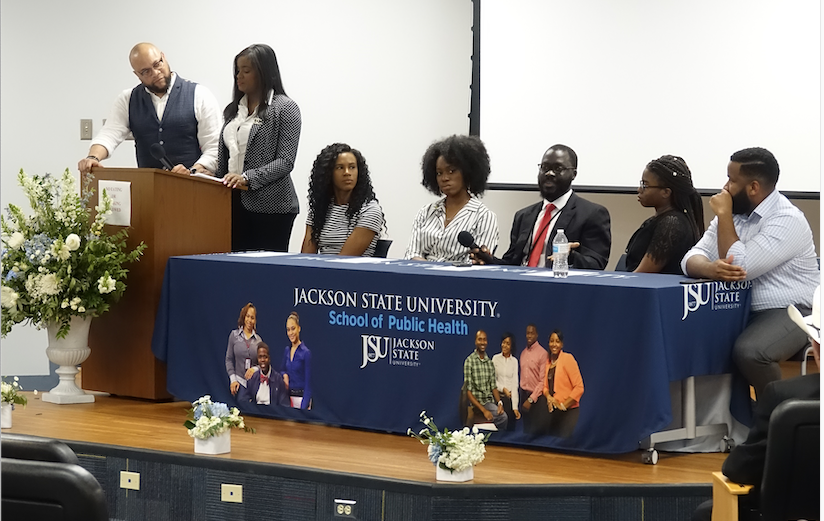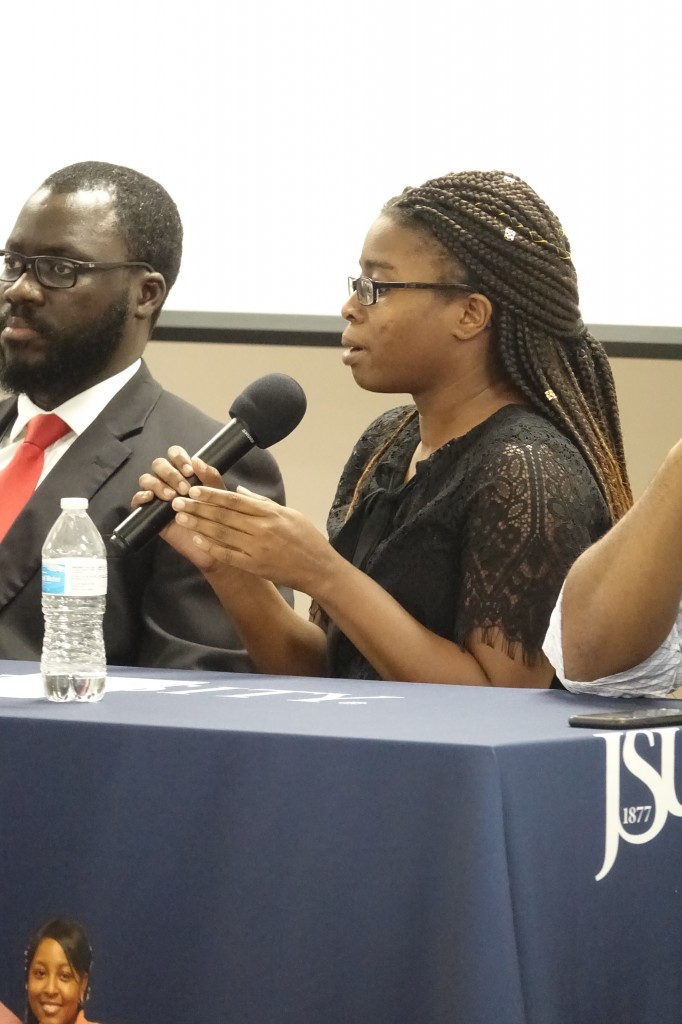![]()
[hr]A failure to provide adequate health care for asylum-seekers and other immigrants caught up in the border dispute raises ethical questions and was among myriad issues addressed recently by JSU alumni working in the public health field.

Other topics highlighted during a recent observance of Public Health Week included challenges resulting from social determinants of health and the impact of decreased government funding.
JSU alum Adam Carson (Class of ’04) studied health care administration. He advocates for access to medical care for everyone, regardless of immigration status, and he supports health care practitioners and providers aiding “these unfortunate individuals because we have a responsibility to care for their needs.”
Furthermore, Carson said, “What I try to champion in the organization that I work for is that everyone has a right to be a productive and engaged citizen.” He said this means creating a marketing strategy for individuals to feel safe to visit Chicago health departments, clinics and county offices without fear of arrest.
Buildings housing a county courthouse and the department of transportation, for example, display messages of welcome rather than threats to deport illegal immigrants. We want them to know “you’re safe coming in to receive services,” he said.
After some deaths children have died while being detained, Carson said, “When you have adverse policies (state or federal), we dehumanize people who are coming into this country for better opportunities – regardless of their approach for getting here. These are women, children and families who are trying to escape poverty and violence.”
Carson wants people to “feel like they can begin the process of building their lives back and starting a new life.”
Meanwhile, panelists also discussed social determinants of health and the challenges of persuading people against smoking. He also supports motivating them to exercise and eat more nutritional foods.
Dr. Vincent Mendy (Class of ’14) said when it comes to health care “there are two Ps, and one is always greater than the other – prevention and the pill. Prevention always has to be greater than the pill.”

He said he believes the U.S. has resources available to solve all health care issues, if it desires. However, he partly blames the problem on “a lot of labels that have been thrown around.” As 2020 approaches, he said, specifically, the controversy over universal health care often gets mischaracterized as communist or socialist practices.
“Rather, the fact is that we’re trying to get all people healthy. We’re not talking about communism or socialism. Again, we must focus on prevention and not the pill. Beforehand, we thought smoking was a leading cause of death. Now, it’s poor diet.”
Decreased funding is also causing discontent and anxiety among many public health workers.
LaDaryl Wakins (Class of ’12) said after the switchovers in administrations from Obama to Trump, emphasis on prevention shifted downward. “I worked in a field that relied heavily on public health prevention funds. At one point, you had this large sum of money you could take into communities and empower communities to start prevention projects.”
Nowadays, she said, quality health care along with food and safe public spaces for physical activities were all taken away. Then, distrust developed in the medical community, she added. “How do we make these projects sustainable even without the government providing money? That’s the only downfall I have about working in public health.”
In her travels abroad to places such as Ghana, Watkins has noticed a few instances in which people in the U.S. and developing nations share similar health struggles. Many of those issues appear to result from reduced funding.
Adrick Harris (Class of ‘17) bemoans the loss of vital capital. “The number of projects and the impact we once had was tremendously cut after the administrations changed,” she said. Harris added that free cancer screenings ceased and aid money was curtailed from some government agencies. “Budget cuts impacted what could be done for the community.”
Other pressing issues are also weighing heavily on the minds of public health workers, despite advances in medicine. Panelists cite the outbreak of measles and the importance of vaccination.
In addition, the Centers for Disease Control and Prevention says HIV continues to threaten black women despite more money spent to curb the disease. They say another huge crisis is the rising number of deaths due to a nationwide opioid addiction.






